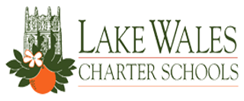SITE UNDER CONSTRUCTION...PLEASE EXCUSE OUR DUST
FEDERAL PROGRAMS
English Language Learners
About Us
The primary focus of the Bureau of Student Achievement through Language Acquisition is to assist schools and districts with Florida's English Language Learners (ELLs), totaling over 265,000. Florida's diversity of ELLs surpasses most states in the country. Florida is ranked 3rd in ELL population, and although Spanish is the major native language of these students, the ELLs speak more than 300 different languages.
The Bureau is also responsible for ensuring that these students receive comprehensible instruction by monitoring schools and districts for compliance with state and federal rules, regulations, the 1990 League of United Latin American Citizens (LULAC) et al. v. the State Board of Education (SBE) Consent Decree, and the 2003 Modification of the Consent Decree.
In addition, the Bureau manages a Title III grant, currently more than $43 million, which is dispersed to eligible districts. This federal funding focuses on providing supplemental professional development to teachers of ELLs, and on providing scientifically research-based academic programs to assist ELL academic achievement and English language acquisition.
Another focus of the Bureau is the management of World Languages. It is the Bureau's responsibility to offer leadership, coordination, and technical assistance for the implementation of legislation and State Board of Education policy and rule, as well as Department initiatives pertaining to curriculum and instruction for Florida students and teachers.
Publications
To request current publications, please contact the Bureau of Student Achievement through Language Acquisition (SALA) at SALA@fldoe.org.
District Contacts
To request current district Contacts plans, please contact the Bureau of Student Achievement through Language Acquisition (SALA) at SALA@fldoe.org.
District ELL Plans
To request current district ELL plans, please contact the Bureau of Student Achievement through Language Acquisition (SALA) at SALA@fldoe.org.
Meetings and Events
For more information on Meetings and Events, please contact the Bureau of Student Achievement through Language Acquisition (SALA) at SALA@fldoe.org.
Contact:
Arlene M. Costello, Ed.D.
Bureau Chief
Student Achievement through Language Acquisition (SALA)
Florida Department of Education
325 W. Gaines Street, RM1324
Tallahassee, Florida, 32399
Office: 850-245-0628
What is Student Support and Academic Enrichment?
The purpose of Student Support and Academic Enrichment is to improve student academic achievement by increasing the capacity of state and local educational agencies in the following areas by:
- providing all students with access to a well-rounded education,
- improving school conditions for student learnings to support safe and healthy students, and
- improving the use of technology in order to advance digital literacy of all students.
McKinney-Vento Program
Every Child Has a Right to an Education
The Federal McKinney-Vento Homeless Assistance Act states that children and youth who lack a fixed, regular, and adequate nighttime residence are considered homeless.
If, due to a loss of housing, a child must live in a shelter, motel, vehicle, or campground, on the street, in abandoned buildings, or doubled-up with relatives or friends, then he/she is eligible to receive services provided under the McKinney-Vento Act.
The McKinney-Vento Education for Homeless Children and Youth Program is designed to address the problems that homeless children and youth have faced in enrolling, attending, and succeeding in school. Under this program, state educational agencies must ensure that each homeless child and youth has equal access to the same free, appropriate public education, including a public preschool education, as other children and youth.
Homeless children and youth must have access to the educational and other services that they need to enable them to meet the same challenging State student academic achievement standards to which all students are held. In addition, homeless students may not be separated from the mainstream school environment.
Under McKinney-Vento, children (PreK-12) have the right to:
- Continue to attend the school they last attended before they lost their housing (school of origin), if that is the parent/guardian’s choice and is in the child’s best interest, or the school which is zoned for their temporary residence.
- Enroll and attend classes immediately while the school arranges for the transfer of school and immunization records and other required enrollment documents.
- If necessary, enroll and attend classes in the school selected by the parent/guardian (school of origin or zoned school), while the school and the parent/guardian seek to resolve a dispute over which school is in the best interest of the child - NOTE: This does not mean any school in the district, only the school of origin or zoned school.
- Receive transportation to the school of origin (if a parent/guardian requests such transportation).
- Participate in any school programs and receive any school services for which they qualify.
Florida McKinney-Vento State Goals
Each School District will:
- Consistently identify at least 5% of their FRL enrollment as homeless in a school year
- Consistently achieve at least a 90% school attendance rate for students identified as homeless in a school year
- Consistently promote at least 90% of students identified as homeless in a school year to the next grade at the end of each year
The federal Individuals with Disabilities Education Improvement Act was first enacted in 1975. The purpose of IDEA is to ensure that all children with disabilities receive a free, appropriate public education to meet their unique needs and prepare them for employment and independent living. IDEA also ensures that the rights of these children and their parents are protected. Further, IDEA assists agencies like the Lake Wales Charter Schools system in providing education to children with disabilities.
Our Exceptional Student Education program also receives support from the Florida Diagnostic & Learning Resources System. FDLRS provides diagnostic, instructional and technology support services to ESE programs and families of students with disabilities.
